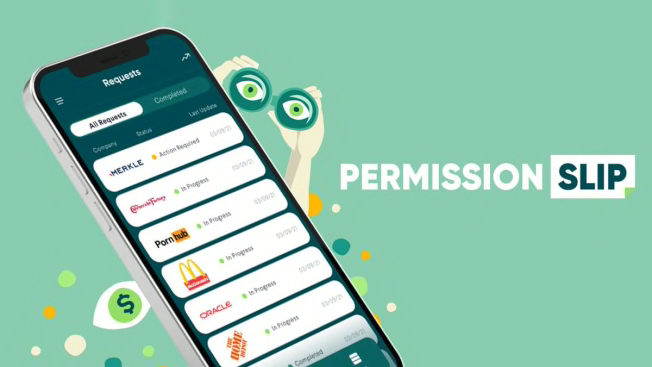
By Pang-Chieh Ho
How long does it take for you to shower? In our Instagram poll, more than half of the 1,210 participants said it takes them 5 to 10 minutes.
On the two ends of the spectrum, however, 36 percent said their showers last more than 10 minutes, while only 10 percent said they take less than 5 minutes.
This week, I’m examining how shorter showers might be better for us. Also in this issue: The truth about skin spots, and what happens if you shut off your car in the middle of driving.
THE BIG STORY:
‘Shower Thoughts’Every once in a while I realize that something I’ve been doing my whole life might be, well, the wrong thing. Like the way I was cutting my toenails. Or how I was using too much detergent and way too little sunscreen.
Recently, I had that realization with showers; that as much as I enjoy long showers and how relaxing they can be, there are many benefits to taking shorter ones.
#1. It’s better for your skin.
It’s true that long, hot showers may feel restorative, but they can dry and irritate the skin, says Lisa Akintilo, MD, a cosmetic dermatologic surgery fellow at Skin Associates of South Florida in Coral Gables. Hot temperatures can strip away natural oils that are needed to keep the skin hydrated, she says.
What makes an optimal shower then? Ideally, showers should be about 5 to 7 minutes and no longer than 15 minutes, says Yousuf Mohammed, PhD, a senior research fellow in dermatology at the Frazer Institute of the University of Queensland in Australia.
Warm water rather than hot is better for skin conditions like eczema, dermatitis, and psoriasis, Yousuf says. And after showering, you should pat yourself dry as opposed to rubbing vigorously with a towel, which can be aggressive to the skin, Lisa says.
Apply moisturizers to keep your skin hydrated. Creams and ointments are preferable to lotions because they contain a higher oil-to-water ratio and thus do a better job of sealing in the moisture, Lisa says.
#2. It’s better for the environment and saves money.
For Americans, the average shower lasts about 8 minutes, according to the Environmental Protection Agency. That’s 20 gallons for every average shower, given that the standard showerhead uses around 2.5 gallons of water per minute.
You can save a lot of water and energy if you shave off a few minutes of your showertime, limiting it to around 5 minutes. Sticking to showers rather than baths also helps because an average bath usually uses up 35 to 50 gallons of water.
Other ways of conserving water include replacing your showerhead for one with a WaterSense label. Not only can it help save 2,700 gallons of water per year, but it also reduces demands on electric water heaters and saves energy—330 kilowatt hours of electricity annually, which is enough to power a house for 11 days.
And instead of just idly waiting for the shower to warm up, you can use the water to wash your face or find other ways to use it, says Tanya Christian, a CR home writer who learned from her West Indian parents how to conserve water. You can also read here for other ways to cut your water usage in half.
Bonus link: Which is better, bar soap or body wash?
FOR YOUR CONSIDERATION

Graphic: Consumer Reports
It’s no big secret that companies are collecting, buying, and selling our data all the time. To protect your privacy, Consumer Reports has developed Permission Slip, an app that helps you take back the data that companies are buying and selling behind your back.
Permission Slip is now available on iOS (and coming soon to Android). Download it to see what types of information companies are collecting from you and send them requests to stop selling your data or delete it entirely.
MUST-READS OF THE WEEK
⏰ The Best Time to Weigh Yourself
Is it the morning, the afternoon, or the evening?
🧳 12 Gifts for the Traveler on Your List
A portable massage gun and travel-friendly sock-style slippers are picks not to miss.
😴 The Lowdown on 5 Weighted Blankets, According to Consumer Reports’ Tests
Can they really help you sleep? Here’s what the research says.
🕵️ The Truth about Skin Spots
Know when the spots are benign and when you should see a doctor.
YUP, WE ACTUALLY TRIED THIS
Question:
What happens if you turn off your car when you’re in the middle of driving?
Answer:
Your engine will turn off, but your steering and brakes will continue to work, according to CR test driver Ryan Pszczolkowski, who bravely attempted this on a gas-only Ford Maverick and a hybrid Maverick at our test track.
It turns out there’s a very good reason for this seemingly strange feature. It’s a safety design that allows you to cut power to the engine and pull the vehicle over to the side of the road in case your car is on fire or experiencing a mechanical failure.
So yes, it’s totally possible to shut off a car while it’s moving, but it’s very rare that you’ll have to do so, and you should only do it during an emergency.
Have a question you want to ask? Send your question and you might get featured in Smarter.
THE GOOD STUFF
Here are five things you probably didn’t know about EVs, including how they’ve been around since the 1880s.
Another fact you might not know: When we tested EV ranges in cold, mild, and warm temperatures, warm temps provided the longest ranges out of all the testing conditions.
THE SHORT ANSWER
Do you need a vitamin D supplement? Actually, probably not.
OUR BAD
In a previous issue of Smarter, I quizzed you on which drains your battery more, using WiFi or your data. At that time, I said performing data-intensive tasks over WiFi saps your battery power faster than using your cellular-data connection, but I was wrong. It’s the opposite, and I stand corrected.
So make sure to use WiFi instead of a cellular connection whenever possible, and check out more tips on how to extend your phone’s battery life.
Consumer Reports is an independent, nonprofit organization that works side by side with consumers to create a fairer, safer, and healthier world. CR does not endorse products or services, and does not accept advertising. Copyright © 2022, Consumer Reports, Inc.
